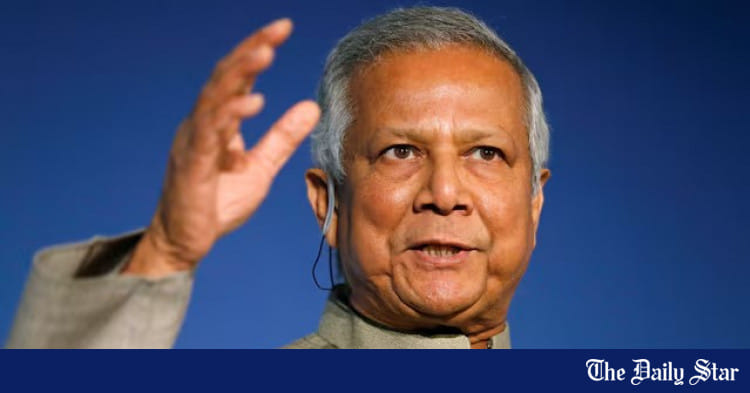Saif
Senior Member
- Joined
- Jan 24, 2024
- Messages
- 17,175
- Likes
- 8,204
- Nation

- Residence

- Axis Group


Polybag use: Enforcement of ban needed
The news that use of polythene bags are going to be banned at the country's superstores carries no meaning. First, most superstores do not allow the material's use; second, and more importantly, the 2002 ban on polythene imposed under the 1995 Bangladesh Environment Conservation Act, first of its k
Polybag use: Enforcement of ban needed
Published :
Sep 11, 2024 22:20
Updated :
Sep 11, 2024 22:20

The news that use of polythene bags are going to be banned at the country's superstores carries no meaning. First, most superstores do not allow the material's use; second, and more importantly, the 2002 ban on polythene imposed under the 1995 Bangladesh Environment Conservation Act, first of its kind in the world, is still in force---it was never scrapped. So, there is no way of banning something that is already banned. It is the enforcement of the law that should be the real issue. Here it is selective enforcement understandably to study it as a test case with the purpose of gradually moving towards complete enforcement all across the country. Superstores avoid using polythene but they also have to use much thicker poly bags for certain items such as fish and meat from which blood oozes out. The law has some concessional provisions for plastic bags. Bags or plastic graded as polyethylene terephthalate (PETE or PET) is safe for use and environment.
Clearly, the debate hinges not on fresh ban on polythene and plastic but on enforcement of the legal provisions. Focusing on superstores which rarely use the poly bags randomly used in groceries and kitchen markets may be convenient but it will hardly make a dent in the colossal problem. Production facilities must be dismantled. After the ban slapped in 2002, polythene bags nearly disappeared from the market and for the first six months people changed their habit in favour of carrying gunny, paper and fabric bags for shopping. Why polythene staged a comeback is the result of lax monitoring and a lack of alternative to the easiest, cheapest and most convenient but highly harmful type now posing a serious threat to the country's environment and by extension its future. It takes as long as 200-400 years for degradation of polythene and plastic materials. In fact, both land and seas of this planet are under severe threat of plastic pollution.
That the adviser in charge of the ministry of environment, forest and climate change has been holding meeting with the stakeholders to know about the preparation for the alternative to poly bags is appreciable. The approach to the problem before enforcement of the law can be replicated when the area gets expanded from superstores to groceries and kitchen markets in the large cities and then all across the country. Reportedly, Dhaka alone uses 4.0 million polythene bags daily. This is mind-boggling and has to be stopped as soon as possible.
The important thing is to go about the task of making polythene bags a thing of the past. No doubt, the first thing ought to be to set a deadline and make effective arrangement for the alternative to such bags. The country's jute mills, mostly incurring losses, can be given a new lease of life if those are assigned to produce the required number of bags of finer quality. But the best alternative would be sonali bag made from jute cellulose invented by scientist Mobarak Ahmed Khan. Currently, the state-owned Latif Bawani Jute Mills produces only 15,000 sonali bags a day. The bag compares better with its polythene counterpart and is biodegradable, environmentally friendly and recyclable. But it is far costlier. Further research and experiment may make cellulose separation cheaper. If mills of higher capacity can be developed, mass production and use of the bag will definitely bring down the cost. Machines of greater capacity can be developed in collaboration with industrial partners abroad.
Published :
Sep 11, 2024 22:20
Updated :
Sep 11, 2024 22:20
The news that use of polythene bags are going to be banned at the country's superstores carries no meaning. First, most superstores do not allow the material's use; second, and more importantly, the 2002 ban on polythene imposed under the 1995 Bangladesh Environment Conservation Act, first of its kind in the world, is still in force---it was never scrapped. So, there is no way of banning something that is already banned. It is the enforcement of the law that should be the real issue. Here it is selective enforcement understandably to study it as a test case with the purpose of gradually moving towards complete enforcement all across the country. Superstores avoid using polythene but they also have to use much thicker poly bags for certain items such as fish and meat from which blood oozes out. The law has some concessional provisions for plastic bags. Bags or plastic graded as polyethylene terephthalate (PETE or PET) is safe for use and environment.
Clearly, the debate hinges not on fresh ban on polythene and plastic but on enforcement of the legal provisions. Focusing on superstores which rarely use the poly bags randomly used in groceries and kitchen markets may be convenient but it will hardly make a dent in the colossal problem. Production facilities must be dismantled. After the ban slapped in 2002, polythene bags nearly disappeared from the market and for the first six months people changed their habit in favour of carrying gunny, paper and fabric bags for shopping. Why polythene staged a comeback is the result of lax monitoring and a lack of alternative to the easiest, cheapest and most convenient but highly harmful type now posing a serious threat to the country's environment and by extension its future. It takes as long as 200-400 years for degradation of polythene and plastic materials. In fact, both land and seas of this planet are under severe threat of plastic pollution.
That the adviser in charge of the ministry of environment, forest and climate change has been holding meeting with the stakeholders to know about the preparation for the alternative to poly bags is appreciable. The approach to the problem before enforcement of the law can be replicated when the area gets expanded from superstores to groceries and kitchen markets in the large cities and then all across the country. Reportedly, Dhaka alone uses 4.0 million polythene bags daily. This is mind-boggling and has to be stopped as soon as possible.
The important thing is to go about the task of making polythene bags a thing of the past. No doubt, the first thing ought to be to set a deadline and make effective arrangement for the alternative to such bags. The country's jute mills, mostly incurring losses, can be given a new lease of life if those are assigned to produce the required number of bags of finer quality. But the best alternative would be sonali bag made from jute cellulose invented by scientist Mobarak Ahmed Khan. Currently, the state-owned Latif Bawani Jute Mills produces only 15,000 sonali bags a day. The bag compares better with its polythene counterpart and is biodegradable, environmentally friendly and recyclable. But it is far costlier. Further research and experiment may make cellulose separation cheaper. If mills of higher capacity can be developed, mass production and use of the bag will definitely bring down the cost. Machines of greater capacity can be developed in collaboration with industrial partners abroad.









































